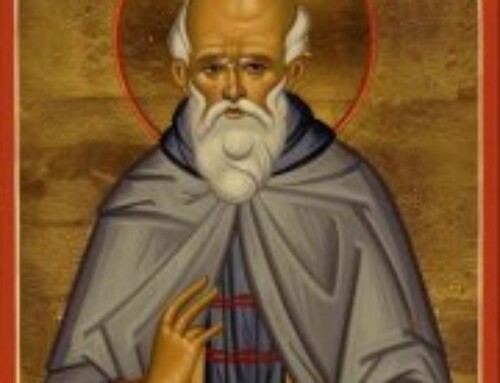Word Magazine September 1999 Page 21-22
Mount Athos: a reminder of
WHO WE ARE AND WHY WE LIVE
By Seminarian Joshua Makoul
In a world so consumed and fixated with worldly pleasures and riddled with secularism, it
has become dangerously easy for the Christian to lose touch with his identity as a child of God and to forget who he is and why he lives. Each day we are bombarded by forces that smother the Spirit in us and attempt to strangle the life of Christ in us. This is a process that happens very subtly, without us hardly even noticing it. We are reminded of the parable of the sower who went out to sow his seeds, and “some of the seeds fell among the thorns, and the thorns grew up and choked the seed so that it became unfruitful” (Matthew 13:7). Perhaps the greatest danger to the Christian living in the world today is to allow that gradual process to take hold in his or her life, in which we gradually become less mindful of the things of the Spirit: prayer, confession, scripture reading; less sensitive to sin, more mindful of material pleasures, and increasingly attached to life in this world. It is a subtle process through which, without us hardly noticing it, our life, our inner life, fades away and becomes hardly distinguishable from the life or existence of the non-believer. Before we realize it we have become the prodigal son who, this time unknowingly, wanders away from the Father and finds himself far away and almost unrecognizable to himself. It seems that we are in need of reminders and examples to help us remain vigilant to who we are and why we are here.
I was blessed recently to make a pilgrimage to Mount Athos, the “Holy Mountain” as it is often called, a peninsula in northeastern Greece which consists of just over twenty large monasteries dating back to the tenth century AD. Of course, one would expect to find a sharp contrast between the life there and what we have here, but this contrast is more powerful than one could expect or perhaps even imagine. The Holy Mountain leaves a deep impact on any visitor who goes there. The pilgrim is presented and confronted with a powerful witness and reminder of what the life of Christ really is and what the purpose of our lives as Christians is. It offers something that many of us living in the secular world have lost, the meaning of life and what our true identity is. It offers the visitor a fresh definition of the word “life” and what constitutes “life”. The pilgrim witnesses these things firsthand, through the life and daily routine that exists there among the monks. This lesson, this definition of true life, is conveyed through the actions of those in the monasteries. It is their actions that speak; such a lesson could never be taught through textbooks.
This definition of life is relatively simple and clear: worship of and communion with God. That is the focus and first priority of those on Athos; their daily routine revolves around this. In America it is said that we have the highest standard of living, yet self-help books remain among the most popular and depression is on the rise. One striking aspect on Athos is how content, emotionally stable, joyful, and at peace the monks are there. They are fulfilled; yet they have no personal possessions, no money, no television, no computers, no luxuries. Their love and inclination to give is also overwhelming. As an Abbot on Athos described their life there, (quoting St. Paul), “we have nothing, but yet we have everything.” This is a powerful testimony. Does this mean that we should all go then and sell our possessions and go to the Holy Mountain to become monks? Of course not, but it is a powerful testimony that we living in the world can all benefit from, whether married or celibate. As His Beatitude Patriarch Ignatius IV has stated, “every Orthodox must have a monastic spirit”.
These things serve as a reminder that happiness and fulfillment can never be found in the things of this world. It is much more worth our time and effort to labor for the Lord and His Kingdom than for more material gain and possessions. For, as could be seen in the life of the monasteries on Athos, peace and contentment come from prayer and a simple, quiet life, not from a life burdened with noise and excess material possessions, not from a life spent in an endless quest for more material luxuries. This is a lesson that every one of us living in the world can apply daily to our life and indeed to our lifestyle.
The life of those on Athos, those who have found that pearl of great price and have given up all that they had for it, offer us, who live in the world, a valuable testimony. We are shown the key to true life and to the way out of mere existence. If we could only set aside that quiet time each day (to appreciate silence and not to fear it as many Americans do), to keep a rule of prayer and scripture reading, to deny excess material things for ourselves but to give overflowingly to others, to see the image of God in each person and to love them for that presence in them (even those we do not know), and to shift our focus from the material and fleeting things of our life to the things of the Spirit. In applying this lesson to our life daily, we will gain the peace, joy, love, contentment and fulfillment that comes from living a life in communion with God. In doing so we will have found answers to the questions for which the secular world searches.
Joshua Makoul recently graduated from Holy Cross Seminary and is a member of St. George, Allentown, Pa.

